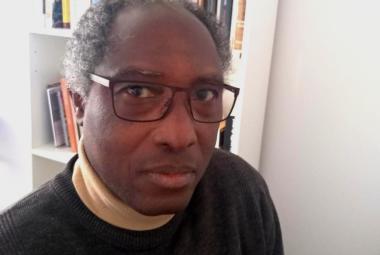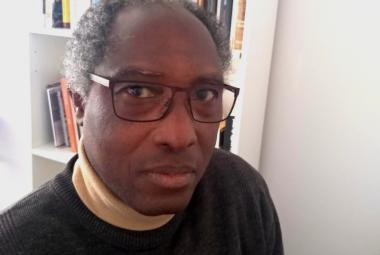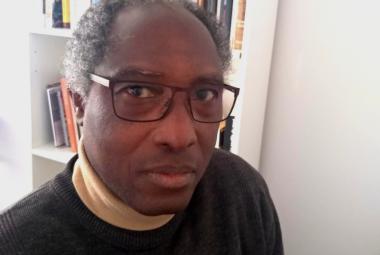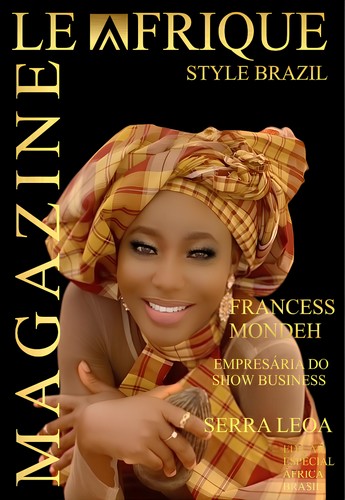In his now famous book entitled Africa must unite, the former President of Ghana, Dr. Kwame Nkrumah, a pan-Africanist before the Lord, set out his views on the evolution of Africa. As long as its leaders deign to want to bring it fully into modernity by assuming its own development. And if they don't make the continent unite, they would condemn it ipso facto to eternal lamentations, so to speak. If only it did not completely disappear as the Earth that counts in the concert of the Nations of the world. Suffice to say that if the project of the United States of Africa was originally proposed by the Jamaican journalist and writer Marcus Garvey, Dr. Kwame Nkrumah made it his own in its realization in Africa.
" Unity is strength ". This adage is not just a concept or an abstract reality. This is a concrete truth that can be proven and tested in every accomplishment, and in any field. And, despite what we can consider as a truth of La Palisse, it always seems difficult to apply it. Even when the weak, themselves, could not be more convinced that by uniting they would become stronger than they would no longer be the laughingstock of the strongest.
All African leaders will tell you that they have no doubt that if all the countries of Africa managed to unite, they would automatically change the course of the History of the world and that of Africans too. But then, why the hell don't they unite? In truth, beyond the incantations, they should hardly be asked to overcome the last essential pitfalls in order to achieve, if not the Union of the African continent, at least of its various Regions, to begin with. And there, before their wide and bulging eyes, appears something even more terrifying than the Myth of Sisyphus. The possible becomes impossible. Each preferring his small country over which he reigns supreme to a Country-Continent over which he is no longer the master.
Yet… And yet, they are the first to admire a leader like Xi Jinping and greater China, to the point of dreaming about it to imagine themselves in such a situation in Africa. The Libyan megalomaniac and dictator, Muammar Gaddafi, pseudo-pan-African in fact, who liked to arm and finance rebels here or foment coups d’Etat there against leaders of Black Africa who refused to submit to his wishes , was absolutely obsessed with it. To the point of being crowned through an event of which he alone had the secret "King of traditional Kings of Africa". A name by which he henceforth wanted to be called.
A United Africa with a Federal Government and an Army capable of deploying anywhere on the continent is a position in which many African Heads of State would see themselves. At the head of a great and powerful Federation of the United States of Africa. Unless, and this is the sine qua non, to federate their micro-states over which they reign, it would have been said in the way in which a leopard watches over its cub. And, at this pace, the African Union's (AU) Agenda 2063 will undoubtedly be postponed in Africa. It is not enough that some African heads of state and governments are only obsessed with the example of Chinese leaders. It is above all a question of finding out how to ensure that Africa, by 2063, is no longer in the process of pronouncing incantations of unification.
If China succeeded in the leap he made, it owes it first of all to the strength of its demography, which itself depended on several historical antecedents which originally made it possible to create a large, highly centralized empire. It then understood very early on that its economic development should be based primarily on two pillars that deserved both substantial investment and great attention, namely agriculture and education. And the results of these combined actions were not long in coming. The economic successes of recent decades, which intoxicate many African heads of state to the point of making them turn to the country of Xi Jinping to hope for funding and investments in order to trace their own paths, are eloquent proof of this.
Unless they want to deceive their peoples, few countries in Africa have the demographic and institutional assets necessary to lead changes in the way they were in China. It would have been possible and achievable, for the benefit of the doubt again, if all the States of Africa were first able to unite. But everyone knows that therein lies in particular the main weakness of Africa. A weakness that some would say is almost congenital in that it is inherent in the very creation of these States by the great Western powers which had colonized them and then constituted them as modern entities, obviously balkanized on purpose. And, to do this, even less territories comparable to China both in terms of your geographic and demographic size to hope to succeed in a work of at least economic transformation for the benefit of Africans.
Unlike the Chinese leaders, those of Africa who would thus see themselves in this position of unifiers like the predecessors of Xi Jinping, have neither their patriotism nor their ambitions. And, federate, is a catch word for these African leaders, which word seems to provoke epileptic seizures in them every time they hear it. So much they prefer to reign over micro-states than to become stronger by conceding a little of their own sovereignty, or even by selling portions of their lands or territories to the Chinese or other foreign powers. It should therefore never be pronounced in front of one of them to speak of Africa. Except for soothing purposes such as an incantation which we know full well will have no effect. Moreover, they do not believe that one of the major assets of China was to be a Country-Continent. For them, the prodigious development of this country must be linked to the fact that its leaders had known how to impose a party which alone exercised its yoke over the whole country and decided everything, in their place and place, in the name of all Chinese women and all Chinese. The only thing that these African heads of state and government idolized in Xi Jinping and many of his predecessors, of whom they were able to surpass Xi Jinping himself, was to seize power and develop temptations to both authoritarian and even messianic. In the predation of the resources of their countries to the detriment of their people, they were also unequaled. And for the rest, it is better to rely on the tears of a dog than on many of them.
To tell the truth, what really interests many African Heads of State and governments in the state of power of China is something quite different from its model of Chinese Socialism. It is only his authoritarian governance. However, modern governance should be democratic and its requirements raised to the level of those of the sciences. By refusing to allow it to be subject to dogmas or other convictions in order to obey only the perfect coincidence of professions of faith with concrete achievements, just as in science the theory or the hypothesis must always rest on demonstration to be penalized for success or failure, as the case may be.
When analyzing the behavior of a number of African civil society activists and politicians, the question that we are entitled to ask is whether Axelle Kabou was not right very early on. By writing her famous essay Et si l’Afrique refusait le développement ? (What if Africa refused development?) to point the finger at the African elites who constantly point out in a childish way the Slave trade and Colonization as the causes of their notorious incapacities to ensure a certain Renaissance of Africa. As if to exonerate themselves from their own turpitude, their “nuclear bomb” consists in quite simply accusing the West of all the ills from which Africa suffers. And Axelle Kabou says it very nicely and precisely when she points out that: “every people is, in the first and last analysis, responsible for the entirety of its history, without exception”. The socio-political philosophy of ancient Nubians, too, is based exactly on this idea that there is nothing more infantile than to designate the other as the person responsible for your own history. And this, whatever the contingencies inherent in this story.
By Marcus Boni Teiga

















